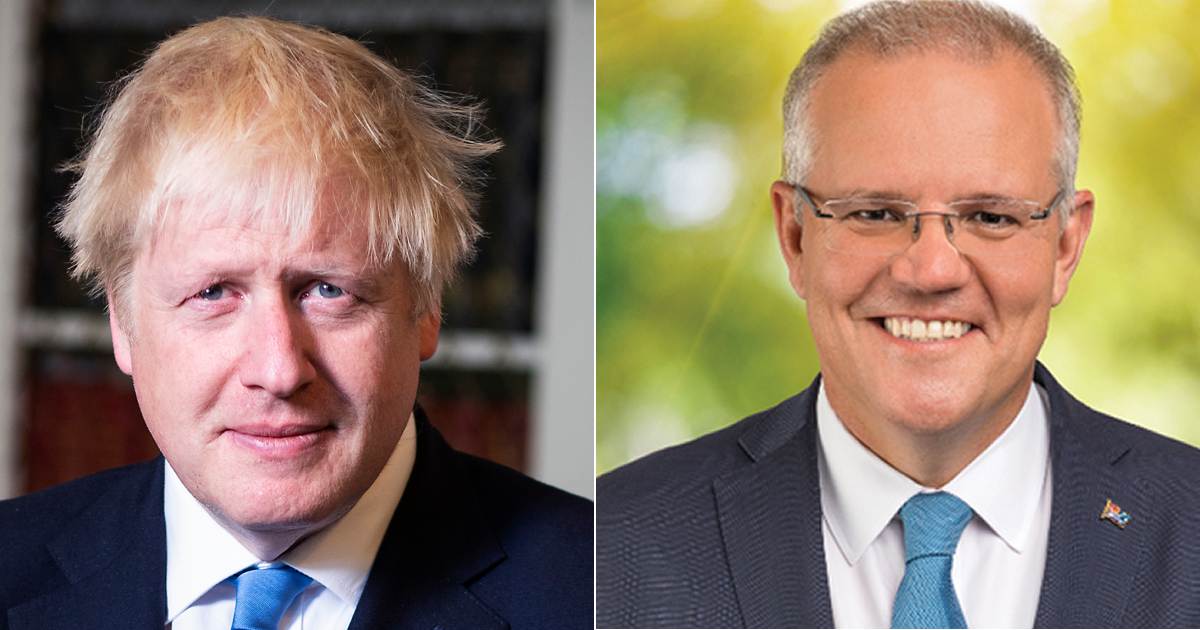
British PM Boris Johnson and Australian Prime Minister Scott Morrison caught up for a telephone chat about emissions reduction. Both sides had somewhat different recollection of the call.
Here’s what a UK Government press release states PM Boris Johnson had to say about the exchange (bolding added):
“The Prime Minister also stressed that we need bold action to address climate change, noting that the UK’s experience demonstrates that driving economic growth and reducing emissions can go hand-in-hand. Looking ahead to the Climate Ambition Summit on 12 December and COP26 in Glasgow next year, he emphasised the importance of setting ambitious targets to cut emissions and reach Net Zero. They agreed to intensify the partnership between the UK and Australia on developing and scaling up green technologies.”
Bit of a subtle hint there.
But the Australian Government’s recollection of the conversation, as reported by The Guardian says PM Johnson:
“welcomed our significant increase in emissions reduction programs announced through the budget, and strongly endorsed our focus on unlocking practical pathways to reducing emissions,” and “Both countries agreed to work closely together to accelerate research and deployment of low-emission technologies ahead of Cop26.”
Same but different? A little too different perhaps.
https://www.youtube.com/watch?v=bLHZmVHSP7A
Prime Minister Morrison commented later yesterday that:
“Australia will set our policies here. Our policies won’t be set in the United Kingdom, they won’t be set in Brussels, they won’t be set in any part of the world other than here.”
Australia Under Pressure To Get With The Program
In June last year, the UK set a target to bring all greenhouse gas emissions to net zero by 2050. It claimed to be the first major economy to do so, but it wouldn’t be the last.
A couple of very recent examples: early this month, China’s President Xi Jinping surprised many by committing his country to net-zero emissions by 2060. Then just this week, Japan’s Prime Minister Yoshihide Suga pledged his country will become carbon-neutral by 2050. In the last 24 hours, South Korea’s President Moon Jae-in said his country had also set a goal of carbon-neutrality by 2050.
And there’s a bunch of other countries large and small that have made similar commitments.
Australia is increasingly finding itself on the outer – and perhaps missing out on a bundle of cash even in the short-term. According to a recent report from the Investor Group on Climate Change, Australia would create $63 billion in fresh investment opportunities over just the next five years by strengthening climate targets and policies in line with reaching net zero emissions by 2050.
Being a part of the net zero emissions club aside, there are other implications associated with China, Japan and South Korea’s recent announcements. The Australian Government’s Department of Industry, Science and Energy Resources’ June 2020 Resources and Energy Quarterly indicates all three were among the top 5 importers of Australian thermal coal in 2019; accounting for 52% of our exports between them.
The writing isn’t on the wall for Australian thermal coal, it’s deeply etched into it.
Survey Says…
If Prime Minister Morrison was to announce an Australian target of net zero emissions by 2050, it would likely be quite well received. Yesterday we reported on the newly released Climate of the Nation report, which indicates 68% of Australians would support such a target. Furthermore, 83% of Australians support a phase-out of coal-fired power stations (31% are for a phase-out as soon as possible).

 RSS - Posts
RSS - Posts



Speak Your Mind